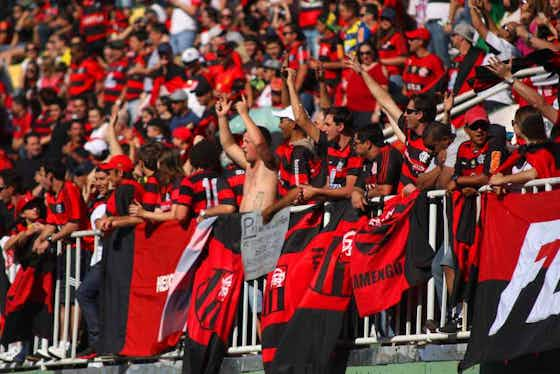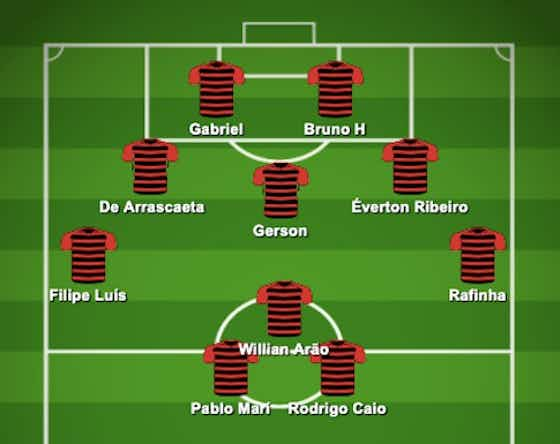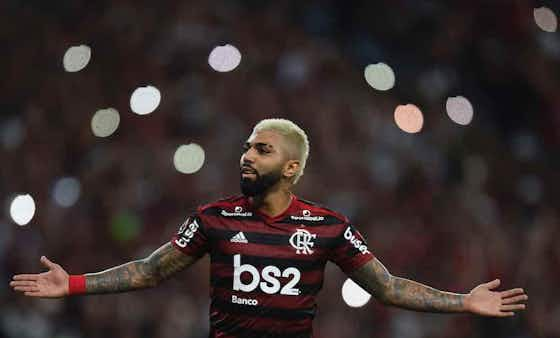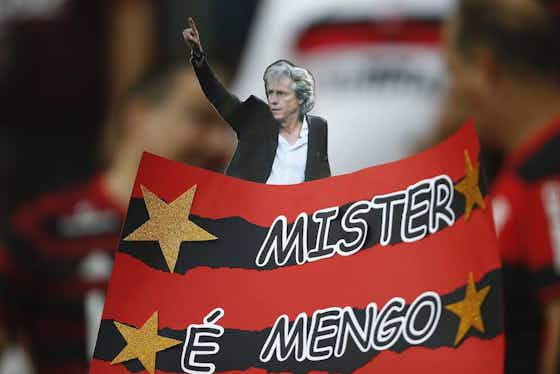World Football Index
·19 July 2020
Flamengo Resurrection Means Jorge Jesus Leaves As A Club Legend

World Football Index
·19 July 2020

By Louis Smith.
Flamengo fans, don’t cry that it’s over, smile because it happened.
Over one year ago, Flamengo hired Jorge Jesus as manager, and little did they know he would go on to become a club legend, ending several years of heartbreak.
After Abel Braga resigned due to increasing pressure from the Flamengo fans and board, Jesus was brought in with the task of helping the club end several years of pain in both the Copa Libertadores and the Campeonato Brasileiro.
Upon Jesus’s arrival, Flamengo commentators and former players were quick to criticise the Portuguese’s appointment due to his age, believing he didn’t have what it takes to adapt to a new country and league. How wrong they were.
On June 6, 2019, Jesus assembled the first piece of his jigsaw bringing in Champions League winning full-back Rafinha. Pablo Mari arrived a month later, along with midfielder Gerson for whom they paid €11.8m (R$49.7m) — a record fee for a Brazilian player to a Brazilian club.
All these players had been based in Europe prior to their arrival, allowing Jesus to adopt a high pressing, attacking brand of football, looking to take the game to the opposition rather than the usual conservative approach adopted by Brazilian teams.
In their first league outing, Jesus’s Flamengo started as they intended to go on, with a rampant 6-1 dismantling of Goiás, featuring a hat-trick from Uruguayan midfielder, Giorgian De Arrascaeta.
A few days later, Jesus completed the final piece of the puzzle, signing Atlético Madrid left-back Filipe Luis on a free transfer.

Ecuadorian side Emelec gave the new manager his first taste of Copa Libertadores action, in the Round of 16 first leg, but he was given a wake-up call as Flamengo lost the game 2-0 and had it all do to in the second leg.
It was a very different story at the Maracana where Flamnego enjoyed a 2-0 victory, taking the match to a penalty shootout where they converted all four of their spot-kicks to see them into the quarterfinals.
At the same time, Flamengo’s unbeaten league run under Jesus came to an end with a shock 3-0 defeat away to Bahia, but the loss signified a turning point in Flamengo’s season, sparking a historic campaign.
In the next 25 games of the season, the Rubro Negro won 21, drawing three, and losing just once — on the final day of the season when the league title had already been lifted.
On the way to the league title, Flamengo scored an impressive 86 goals, the highest of any team since Corinthians found the net 87 times back in 2005.
One key element to Flamengo’s goal scoring record was the attacking brand of football Jesus introduced, often having eight men in the opposition half. When the ball was lost, Flamengo would hunt in packs to try to win back the ball as quickly as possible.

Benefiting hugely from this highly attacking system was the front four of Gabriel ‘Gabigol’ Barbosa, Bruno Henrique, Éverton Ribeiro, and De Arrascaeta, who together scored 73 goals and assisted 42 between them — impressive stats at any level of football.
In the quarterfinal of the Libertadores, Flamengo took on fellow Brazilian side Internacional. A brace from Bruno Henrique in the first leg was enough to give Jesus’s Flamengo a 2-0 lead to take to the Beira Rio Stadium.
In the second leg, Flamengo ensured a place in the Copa Libertadores semi-final for the first time in 35 years with a 1-1 draw.
The semi-final paired Jesus’s side against another Brazilian club, Grêmio, who had the edge in terms of experience having won the competition back in 2017, but on the field, it was a completely different story.
After a 1-1 draw in Porto Alegre, the tie was in the balance going into the game in Rio. In front of their own fans, Flamengo put in one of their best performances of the season — possibly one of the best displays of Jesus’s tenure.

Flamengo cruised into the Copa Libertadores final with a 5-0 demolition of Grêmio. Bruno Henrique and Gabigol both got on the scoresheet as well centre backs Mari and Caio, showing it’s not just the strikers you need to worry about in a team managed by Jesus.
For the first time since 1981, Flamengo reached the Copa Libertadores final. Jesus had already earned the nickname ‘Mister’ from the fans, but he now had a chance to write himself into the club’s history forever.
Standing between Jesus and Flamengo was River Plate, the defending champions. The Argentine side stunned Flamengo early on, taking the lead through Rafael Santos Borré. Jesus didn’t panic, didn’t rush, or try and force a way back into the game. He trusted his system and players to turn the tie around, and they did just that in a crazy five minute period.
A brace from Gabigol in the dying minutes of the game saw Flamengo snatch the title from the hands of River Plate, ensuring Jesus would go down as a Flamengo legend. He became only the second European manager to lift South America’s greatest prize (the other being Croatian Mirko Jozić with Colo colo in 1991).

It wasn’t just Brazil where Jesus’s achievements were recognized. He was given a knighthood in his native Portugal by Marcelo Rebelo de Sousa, who stated that Jesus had helped improve the country’s reputation on foreign shores.
Although at Flamengo for a relatively short time in 2020, he still managed to help the Rubro Negro secure more trophies — the Brazilian Supercup, the Recopa Sudamericana, the Taça Guanabara, and the Campeonato Carioca.
Jesus now leaves Flamengo for his native Portugal to take over at Benfica, a side with whom he has history having won ten trophies there between 2009 and 2015.
Several Flamengo players took to social media to thank arguably their greatest manager ever.
Whoever is to take over at Flamengo next has a huge task on their hands to replace Jesus — a man who will go down as a Flamengo legend.


Live





























































